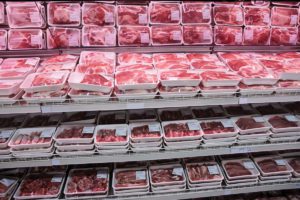
According to information on the website of the Verkhovna Rada of Ukraine, on December 27 the document was returned with the signature of the president.
As reported, the Verkhovna Rada adopted as a whole bill No. 2240 on settling the issue of amber extraction, which provides for the introduction of uniform exploration permits with the right to produce amber for a period of five years on plots of up to 10 hectares through ProZorro electronic auctions.
This decision was supported by 279 MPs with the quorum being 226 votes.
According to the bill, access to amber deposits will be regulated by establishing the right of land easements and defining separate Article 971 of the Land Code for exploration and mining on disturbed lands.
In addition, the document introduces criminal liability for illegal mining and administrative liability for violation of mining requirements, as well as toughens liability for non-compliance with land reclamation requirements and the obligation to compensate for losses incurred.

Sugar production in Ukraine as of December 17, 2019 amounted to 1.375 million tonnes.
According to the Ukrtsukor National Association of Sugar Producers, in the 2019/2020 season some 31 sugar plants were operating. To date, they have processed 9.11 million tonnes of sugar beets.
As reported, the sugar season in Ukraine started on September 1.
Sugar production in the 2018/2019 season decreased by 15% compared with the previous agricultural year, to 1.82 million tonnes.

Milk production in Ukraine in January-November 2019 decreased by 3.7% compared to the same period in 2018, to 9.08 million tonnes. According to the State Statistics Service, in January-November 2019, farmers produced 3.05 million tonnes of meat (live weight), which is 5.8% more than in the same period of 2018.
Egg production grew by 3.5%, to 15.51 billion units.

Electricity production by all power plants of state enterprise Energoatom in January-November 2019 decreased by 2.2% (by 1.656 billion kWh) compared to the same period of the previous year, to 74.889 billion kWh.
According to the press service of the company, the plan for the production of electricity for the specified period in 2019 was overfulfilled by 1.4%.
The share of Energoatom in the overall structure of electricity production in the country amounted to 53.6%, which is 0.2 percentage points more than in January-November 2018.
The power plants of the state enterprise for the reporting period supplied 70.34 billion kWh, which is 2.3% less than a year earlier.
The volume of capital investments for the 11 months amounted to UAH 12.094 billion against UAH 10.069 billion. in January-November 2019, financing of capital investments totaled UAH 12.957 billion against UAH 10.798 billion.
During the reporting period, the company transferred UAH 12.328 billion to the budgets of all levels, insurance payments amounted to UAH 2.343 billion.
Some 12 violations were recorded in the operation of Ukrainian nuclear power plants for the 11 months of 2019 against 20 violations for the 11 months of 2018.

Electricity production by all power plants of state enterprise Energoatom in January-October 2019 decreased by 1.9% (by 1.3 billion kWh) compared to the same period of the previous year, to 67.271 billion kWh.
According to the press service of the company, the plan for production of electricity for the specified period in 2019 was exceeded by 1.6%.
The share of Energoatom in the overall structure of electricity production in the country amounted to 53.1%, which is 0.1 percentage points less than in January-October 2018.
The power plants of the state enterprise for the reporting period supplied 63.170 billion kWh, which is 2% less than a year earlier.
The volume of capital investments for the ten months amounted to UAH 10.253 billion against UAH 9.270 billion. in January-October 2019, financing of capital investments was UAH 12.465 billion against UAH 9.983 billion.
During the reporting period, the company transferred UAH 12.205 billion to the budgets of all levels, insurance payments amounted to UAH 2.109 billion.

Milk production in Ukraine in January-October 2019 decreased by 3.6% compared to the same period in 2018, to 8.4 million tonnes.
According to the State Statistics Service, in January-October 2019, farmers produced 2.73 million tonnes of meat (live weight), which is 6.3% more than in the same period of 2018.
Egg production grew by 4%, to 14.32 billion units.